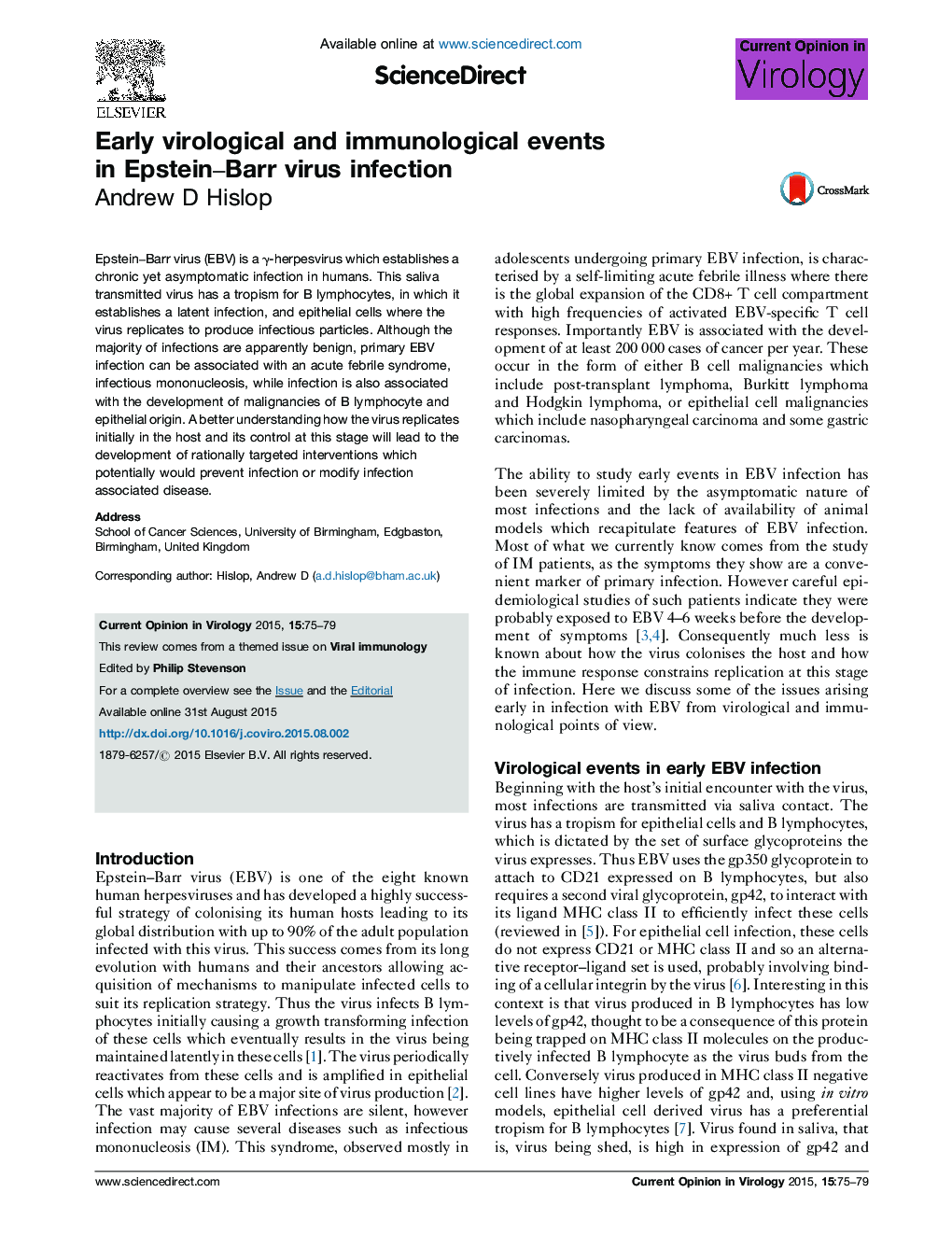| Article ID | Journal | Published Year | Pages | File Type |
|---|---|---|---|---|
| 2473211 | Current Opinion in Virology | 2015 | 5 Pages |
•After EBV exposure virus loads not detectable until just before symptom development.•NK cells appear to have a role in controlling lytic infected cells in early infection.•No global expansion of CD8, CD4 or NK cells seen before symptomatic EBV infection.•No global expansion of CD8 or CD4 cells during asymptomatic EBV infection.
Epstein–Barr virus (EBV) is a γ-herpesvirus which establishes a chronic yet asymptomatic infection in humans. This saliva transmitted virus has a tropism for B lymphocytes, in which it establishes a latent infection, and epithelial cells where the virus replicates to produce infectious particles. Although the majority of infections are apparently benign, primary EBV infection can be associated with an acute febrile syndrome, infectious mononucleosis, while infection is also associated with the development of malignancies of B lymphocyte and epithelial origin. A better understanding how the virus replicates initially in the host and its control at this stage will lead to the development of rationally targeted interventions which potentially would prevent infection or modify infection associated disease.
